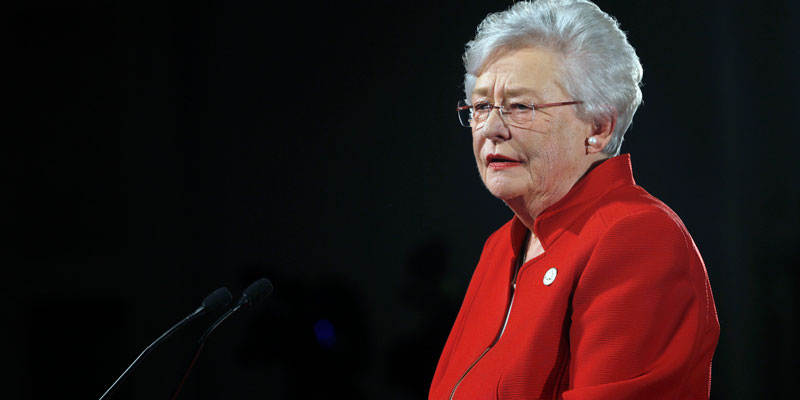There have long been debates about what constitutes conservative economic policy – debates that continue more furiously in the days of Trump’s tariffs – but arguments almost always prioritize the best possible result for consumers.
Gov. Kay Ivey’s position on the Supreme Court’s ruling in South Dakota vs. Wayfair does not do that. It does not promote the interest of consumers, nor the support of most businesses as it pretends, but the interest of government.
Here is Ivey’s statement:
“Technology and the advent of e-commerce has drastically changed the retail landscape and the states’ ability to collect sales taxes. The Supreme Court’s ruling related to online sales taxes is a common-sense approach that modernizes existing limitations on the taxation of e-commerce sales and will facilitate collections in our global, technology-driven economy. The change effected by the Court’s decision will promote parity between our state’s brick and mortar businesses and competing out-of-state sellers.”
Before addressing her “parity” claim, it’s important to note that she, in shadowed words, clearly demonstrates her support for Wayfair for government’s sake.
“Will facilitate collections” simply means “will earn Montgomery more money.”
She’s not alone on this. Nebraska’s governor has found the ruling useful, as has Indiana’s.
Governors and their legislatures may find more revenue to be helpful, but in order to get more revenue, consumers have to pay more. That’s bad for consumers, and what’s bad for consumers is bad.
As for parity among businesses, the Washington Examiner editorial board makes a compelling case that Wayfair will destroy entrepreneurship by placing extreme tax compliance burdens on internet startups and other non-Amazon businesses with an online presence.
Sure, Wayfair may help Rooms To Go and businesses of the like experience fairness, but it will hurt many, many more.
Ultimately, Gov. Ivey operates upon a flawed parity standard.
Melvyn Krauss, emeritus professor of economics at New York University, wrote a strong rebuttal to trade protectionists in his 1997 book How Nations Grow Rich, focusing specifically on their misunderstanding of equity. That rebuttal resonates on this issue as well, simply replace ‘trade’ with ‘commerce:’
“Free trade is fair trade to those whom it counts the most to be fair – the domestic consumer… A consumer-based standard is the only relevant equity standard in our free-enterprise economy. In a free market economy, the consumer is king, not the producer or the government.”
Wayfair and its supporters treat government, and try to treat brick-and-mortars, as king, rather than consumers.
@jeremywbeaman is a contributing writer for Yellowhammer News
Don’t miss out! Subscribe today to have Alabama’s leading headlines delivered to your inbox.
